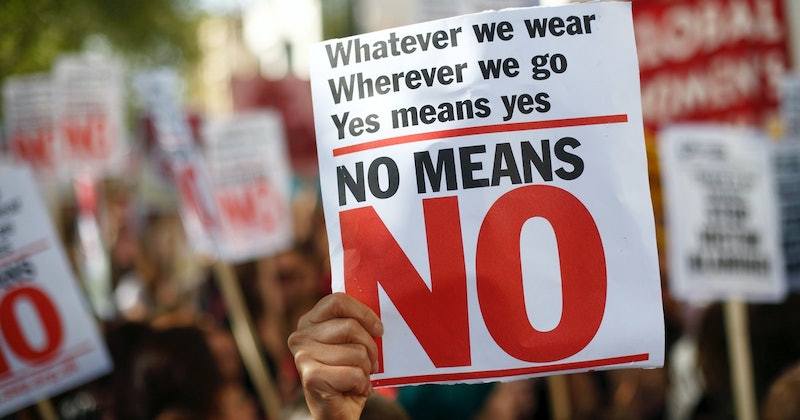Utah Opted Not to Teach Consent in Sex Education

Last month, Utah lawmakers struck down a bill that would have required consent to be taught in sex-education classes. The Hill reported that the bill was struck down in a 7-4 vote in Utah’s House Education Committee. The move is notable amid the Guttmacher Institute’s recent report that there has been a recent wave of strengthened sex-ed requirements across the country.
Opponents of the bill said that teaching consent wasn’t necessary since “refusal skills” are already part of Utah’s sex-ed curriculum. These skills are defined by the Utah Health Curriculum Requirements as “instruction in a student’s’ ability to clearly and expressly refuse sexual advances by a minor or adult.” The emphasis on the victim having to refuse goes against the ideas of many anti-sexual assault activists who have advocated for consent, which is defined by Project Respect, an organization dedicated to teaching young people about sex education, as “a mutual verbal, physical, and emotional agreement that happens without manipulation, threats, or head games.”
Unlike consent, refusal skills don’t take into account threats or manipulation, or the reality that those being sexually assaulted often mentally freeze, preventing them from yelling or fighting back. The cost of “refusal” for many victims can also become complicated when their assailants are more physically imposing than they are.
The state’s sex-ed curriculum — which, according to CNN, stresses “the importance of abstinence from all sexual activity before marriage and fidelity after marriage,” and does not require education about contraception — had already been criticized before this move, and has already led to real-life consequences. Victim advocate Alan Buys told CNN that he not only agrees that an approach of “refusal” puts undue pressure on victims, but that it’s inadequate for incidents where boundaries have already been crossed. As a result, Buys says he’s encountered students who did “sexual things without getting consent and didn’t have a clue” they needed to.
The statewide rape and sexual assault statistics show the pervasiveness of this problem. KUTV reported in 2020 that 54% of Utah residents between the ages of 18 and 34, the majority of whom are women, reported being sexually assaulted. Native Americans were twice as likely to experience sexual assault than any other race, according to the same report.
Rep. Carol Spackman Moss (D), who introduced the bill, explained her personal connection to consent education to The Hill, disclosing that a relative sexually abused her three daughters as minors. Moss told KUTV she was inspired to sponsor the bill after she heard from a couple of Brigham Young University graduate students who shared their own experiences and described how frequently Utah residents face unwanted sexual advances.
Moss indicated that ending sexual violence was the ultimate goal of her bill, telling KUTV that “by giving young people the knowledge and skills to protect themselves from sexual violence, it will not only ensure that every child in Utah can be protected, but consent education can also help them have healthy relationships."
Education about healthy sexuality and consent is sorely needed in a nation that is still being rocked by reports of powerful men’s sexual predation. A common rebuttal from #MeToo opponents is that with the looming specter of being outed as a “sexual harasser” or worse, men have become too afraid to function. Where is the line between jokes and harassment? Between a friendly hug and an HR complaint? Sex ed may actually have the answers to those questions. But only if governments chose to implement them in the right way.
More articles by Category: Education
More articles by Tag: Sexuality, Sex education, High school



























